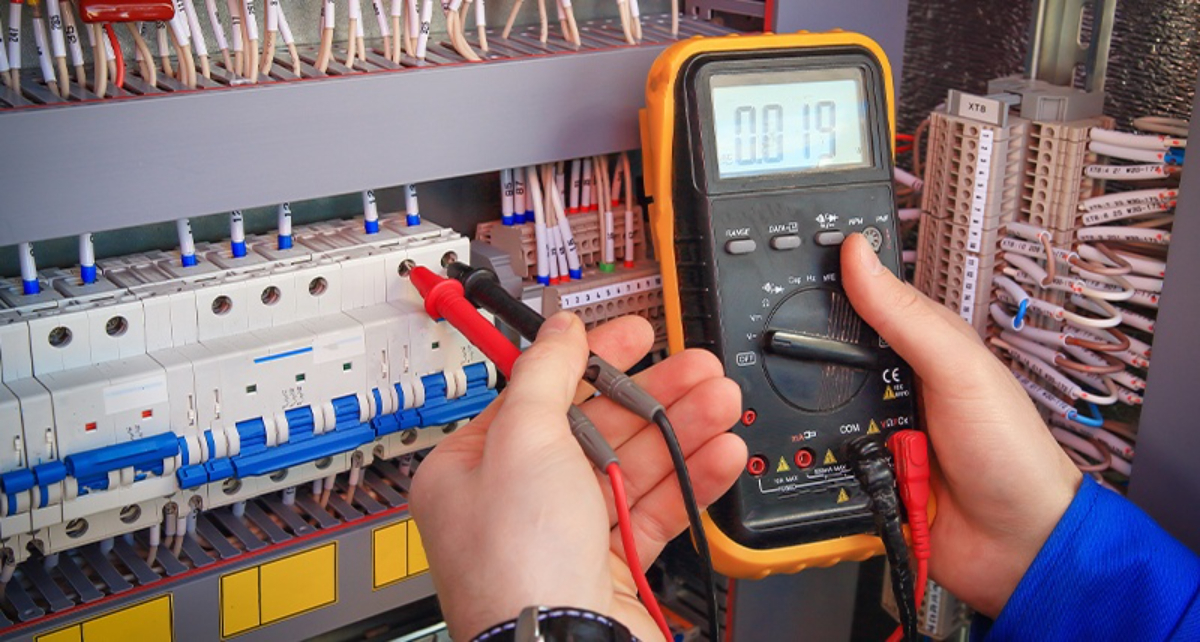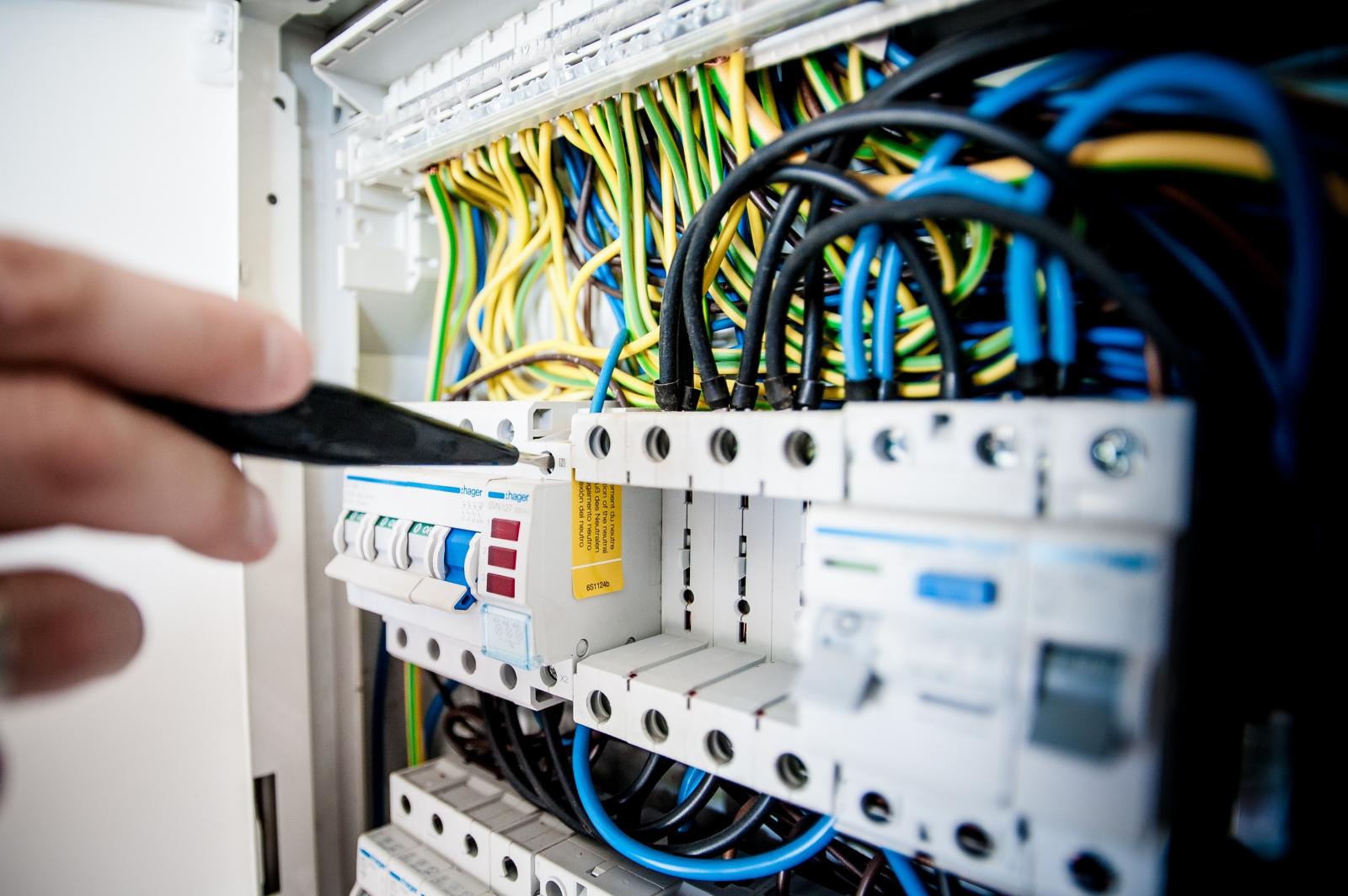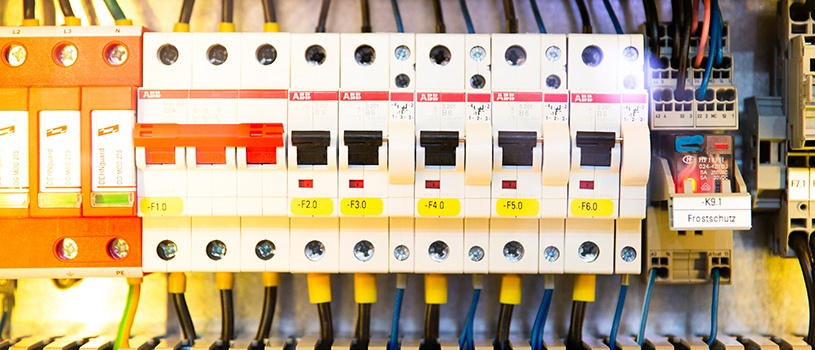Most Common Cause Of Electrical Problems
- Posted by:
- Admin
- Tags:
- Posted date:
- 10-08-2021

Find out more about the most common cause of electrical problems. We look at common causes of electrical problems in the home and in commercial buildings.
Common causes of electrical problems
Electrical problems are common in every household, and people often learn to live with them rather than trying to fix them. But this is the wrong way to go about things, as small electrical problems now can grow to be significant issues in the future.
If you already have a significant electrical problem in your home, you definitely should not ignore it. The potential risk of electrical fires should be taken seriously, and you should do everything you can to avoid them.
In this article, we will take you through a selection of the most common electrical problems you could experience in your home. While you may be able to remedy these issues yourself, it is always safer to have a professional do it. Arranging for a qualified electrical maintenance engineer to fix your electrical problems is the safest and easiest way to make your home safe again.
Repeated tripping of circuit breakers
Circuit breakers are the modern versions of the old school fuse boxes that you can still find in older houses. As the name might suggest, circuit breakers cut the flow of electrical current in your home if it goes over a certain limit.
This is done to protect your electrical appliances, as a voltage surge higher than they can handle can completely ruin them.
If you have a circuit breaker in your home, it is normal to trip now and then.
Flipping the breaker switch back will bring everything back to normal.
However, if you find that your circuit breaker is tripping more frequently, this may denote a more significant issue with your electrical system.
One possible reason why your breaker may trip more than usual is that you are demanding too much power from a single circuit.
Having too many appliances on a single circuit can exceed its ampere rating and trip your breaker.
Shorted wires may also be a possible cause. If your breaker continues to trip after unplugging all high-powered devices, you should have a professional check your breaker's wiring.

Buzzing of switches and sockets
Another symptom of damaged electrics in your home could be switches that are hot to touch. While this can be common, it is not something you should dismiss.
Similar switch or socket issues include charring or audible buzzing sounds. These issues are usually caused by faulty wiring in or around the socket. Switches and sockets that are not connected properly can also present issues, even causing shorts.
Shocks from power points
One of the most noticeable, and therefore common, home electrical issues are receiving small shocks from your switches or sockets.
What causes these shocks may lie within the switch, socket or an appliance that is plugged into it.
To determine which of these it is, unplug the appliance and plug a new one into the socket.
If the shocks continue, then it is an issue with the socket itself.
You will need to have the switch or socket and its internal wiring checked by a professional electrical engineer.
Burning smell
Many appliances may produce a burning smell when they are first plugged in and heat up. However, if you notice the burning smell coming from the socket, unplug the appliance straight away. You should arrange to have a qualified electrician check the socket for faults before using it again.
The cause of the burning smell could be the plastic insulation of the socket's wiring.
During a short, this insulation can melt and eventually begin to burn. Therefore, most electrical fires are first noticed when an acrid burning smell is coming from the socket.
These shorts that can start electrical fires may occur in the socket's wiring or the wires deeper inside the walls themselves.
Wherever the short occurs, most electrical fire experts consider an acrid burning smell a warning sign, given that electrical fires are mostly undetectable.


Sparking
If you notice any of your switches, sockets or appliances sparking, this is a serious issue that needs to be resolved as quickly as possible.
A more serious problem is if you notice sparks flying from your circuit breaker or fuse box. This needs urgent attention, and you should have a professional electrician fix the issue.
If it is an appliance that is sparking, this is an easier problem to fix. Please avoid using the appliance again until it has been repaired or replaced.
DIMMING OR FLICKERING LIGHTS
Another of the most common electrical issues you may experience in your home is your lights randomly dimming or flickering without an apparent cause.
Light issues are mostly caused by faulty wiring or overloading of your house's circuit.
Of course, the problem could be with the light itself, but if you find that multiple lights are dimming or flickering, your wiring or the circuit is the most likely cause.
Damaged, exposed or frayed wiring
All of the electrics in your home, whether switches, sockets, wires or cables, will wear out over time. This wearing out is what leads to the majority of the issues we've already gone over.
Having damaged, exposed or frayed wires in your home is a sure way to get yourself into trouble. They are the primary cause of electrical fires and electrocutions.
If your home is old - around 20 years old - or you have recently moved into an old house, then you should have all of the building's wiring checked by a qualified electrician. Electrical service providers, such as ourselves, can conduct this kind of work for you. We can thoroughly test your electricals and help you maintain a safe home.
Ideally, it would be best if you had your home's wiring and electricals serviced once every two years to keep things running smoothly. Regular servicing will also allow you to find a solution to any hidden issues that you may not be able to notice on your own. Of course, if you have any minor or non-threatening issues, you can always call your local electrician.

What can cause electrical problems?
Given how varied electrical problems can be, their causes can also be very varied:
- Regular electrical surges: there are many reasons why your home may experience a surge. They are usually caused by faulty devices, damaged exterior power lines or faulty wiring.
- Faulty switches: issues with your switches can often be attributed to either poor quality equipment or workmanship. Newly installed switches or ones that have recently been removed can also cause problems elsewhere in your home.
- Irregular power supply: sags and dips in your electrical power are often caused by faulty appliances plugged into your circuit. These appliances can draw more power than they need from your power grid, leading to falls in power elsewhere.
- Tripped circuit breaker: using too many high-powered appliances at once can cause your circuit breaker to trip, cutting the power supply to your home.
- Bright or dim lighting: if you have too bright or dim lights, there are a couple of reasons for this. Either you have lights of different wattages, or there is a compromise in the neutral connection. It would be best not to try to fix this yourself, as it is very dangerous.
- Shocks: one of the main causes of electrical shocks is faulty devices. Shocks usually occur when switching appliances off and on, and you should have them replaced.
- Expensive bills: if your electricity bills are unusually high, it could be due to a faulty appliance demanding more energy than it should. You may also want to consider unplugging appliances when they are not in use.
- Using too many lightbulbs: you may be using the wrong wattage of bulb for your fixtures, buying faulty bulbs, or have faulty wiring within your light fixtures. It is best to have a qualified electrician test and remedy your faulty light fixtures.
How do I check for electrical problems in my house?
Some things you can do to check for electrical problems in your home include:
- Tracking how many times your circuit breaker trips
- Check your lights for flickering, buzzing or dimming
- Keep a lookout for frayed or damaged wiring
- Look for discoloured or charred sockets and smoke.
- Check for sockets that feel warm or that vibrate
- Check for acrid burning smells
How are electrical problems diagnosed?
Unlike other DIY projects, your home's electrical system is not something you should attempt to fix on your own. Only qualified electricians have the necessary experience and training to carry out diagnostics.
Therefore, if you think your home is experiencing electrical problems, you should contact the services of an electrical specialist, such as ourselves.
How do we avoid having electrical problems?
There are several things you can do to prevent electrical problems occurring in your home:
- Inspect appliance wiring before use, replacing those that are damaged.
- Familiarise yourself with how to use shut-off switches and circuit breaker electrical panels.
- Please do not use too many extension cords, and only use them for a short time.
- Multi-plug adapters must have in-built circuit breakers or fuses.
- Do not spill liquids or chemicals on electrical equipment.
- Ensure all electrical cords have the necessary plastic insulation.
- Replace any damaged cords that you find.
- Replacing appliances that cause shocks, overheat, spark or smoke when in use.
We hope this article has been helpful in understanding the common causes of electrical problems.
If you live in the Retford, Nottinghamshire area and you need help or advice with commercial or domestic electrical testing we can help. Follow the links below to contact our local Retford electrical expert today.
